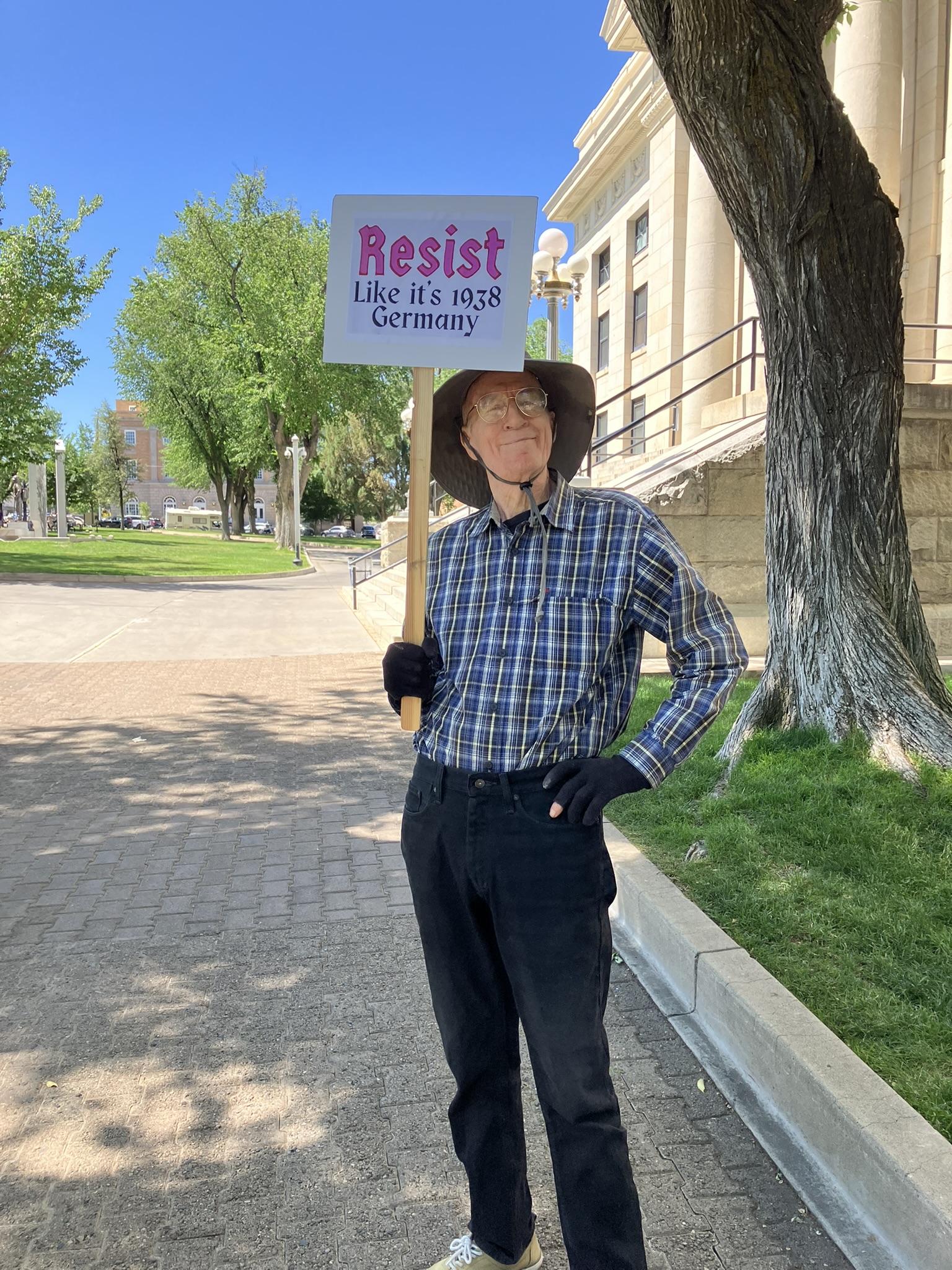Victor Wong, a PhD candidate studying public policy at the University of Western Australia, is working on a thesis that he describes as an attempt to connect the policies of Bill Clinton and Barack Obama to the current state of Democratic politics.
He contacted me because he'd read my John Lennon bio, Nowhere Man, and thought I might be able to answer some questions related to his thesis. I told him I'd try. As it turned out, only one question was about Lennon; two touched on material I'd covered in Bobby in Naziland; and the rest were about the politics of the 1970s. The latter, in part, is what I've been exploring in the still-untitled book I'm currently working on, some of which is set at a politically radical and pornographic student newspaper at the City College of New York.
Answering Wong's questions (off the top of my head) was challenging, kind of a mental warm-up to get in gear for another day of re-creating the atmosphere of the 1970s, a time when the student left was giving way to the encroaching forces of what was not yet called punk.
Below are Wong's 16 questions and my answers.
What exactly were the motives ascribed to the Johnson administration regarding its acceleration of the war in Vietnam? Was it the domino theory pertaining to Communism, as some have suggested, or was there talk of some other underlying, more complicated motive such as imperialistic excess, for example?
The "domino theory" is what they taught us in school—junior high and high school at the time. My understanding now is that the U.S. was fighting in Vietnam because of all the American corporations that did business there. As with everything, the war was about money. We had to keep Vietnam safe for capitalism. There's a documentary, Millhouse (1971), about Nixon. If I'm not mistaken, the end credits include a list of every U.S. corporation doing business in Vietnam. And, of course, there was the "We've invested so much blood and treasure, we can't leave now" excuse. And nobody wanted to be the president who lost a war for the first time since 1812, even though they knew the war was unwinnable.
Was the U.S.'s youth particularly partial to leftist ideologies such as Trotskyism—or Leninism—or were most of them distracted by other things in their lives?
In the early 1970s, at the City College of New York, only a tiny minority of students were hardcore communists or involved with Trotskyist or Leninist organizations. Most students were simply opposed to a war they thought was pointless, illegal, and never-ending. Then, in 1973, the draft ended (though the war continued), and the remaining energy animating the student left began to dissipate. And yes, there was a multitude of distractions—drugs, music, and sex among them.
What were John Lennon's true feelings regarding the war? Did he ever express his thoughts regarding the war in his diaries?
Though Lennon never mentioned the war in his diaries, I think he was genuinely opposed to it. His antiwar activism was more than an act.
Often, in my experience, the military—or some of its members—are quick to lay blame for America's defeat or withdrawal on the media for its depictions of the war on TV. Do you think this is a fair assessment?
Vietnam was the first televised war, beamed into your living room every night. People were appalled by what they saw on TV and read in many of the mainstream newspapers and magazines and the underground press. Then there was the moment Walter Cronkite, whom everybody listened to, turned against the war. So, yes, I think the media played a role in ending the war. But to blame the media for America losing the war is absurd. As the Pentagon Papers make clear, the war was unwinnable.
Is there any comparison whatsoever between the Vietnam War and the war in Iraq?
Both wars lasted seemingly forever (Iraq continues); both were unwinnable; and both were based on lies.
Ultimately, did the Vietnam War have a deleterious effect on American politics on the domestic front?
Yes, it taught us to hate the government and to assume that everything the government told us was lies and propaganda. And it gave rise to groups like the Weathermen, who literally declared war on America and, in order to end the war, were prepared to kill people with massive dynamite-and-nail bombs.
Why did the U.S.'s youth view World War II as an existential struggle in comparison with the war in Vietnam, which they regarded with contempt?
Our fathers were World War II veterans who fought the Nazis and Japanese. They brought us up to believe in the righteousness and necessity of that war, and to hate the Nazis and Japanese. This is exactly what my book Bobby in Naziland is about—growing up in the aftermath of World War II among Holocaust survivors and World War II vets, and the war lingering "like a mass hallucination." Though I was politically naïve and ignorant in the late 60s and early 70s, as I approached draft age (I turned 18 in 1970), it was clear to me that the war was pointless. I was prepared to do anything necessary to not be drafted and sent to Vietnam. Most people I knew felt the same way. Fortunately, all I had to do was go to college and get a 2S student deferment.
Was there really widespread opposition to the war, or was it more of a niche movement?
The opposition in New York City was widespread. Nobody wanted to get drafted and sent to Vietnam to die in the jungle for Richard Nixon. And many of our parents didn't want to see that happen, either.
Was Nazism viewed as more of a threat to U.S. interests than Communism as it was being practiced by Vietnam, China, and the USSR?
If you're talking about Nazism in the 1940s, I'd say yes. They were overrunning the world, committing genocide, bombing major cities of our European allies, working on an atomic bomb, and trying to figure out how to invade the U.S. It was a very dark time when we thought we might lose the war. The main horror of Communism during the 60s and 70s was the threat of nuclear war. But with the exception of the Cuban Missile Crisis, it seemed more like a background threat, not something you worried about every single day. I don't think anybody outside the John Birch Society believed the Russians or Chinese were going to overrun America. The U.S. fought Communism far away, in Korea and Vietnam (to protect corporate interests). And that's where they stayed. "We fight them over there so we don't have to fight them here," the saying went. As far as Joe McCarthy, I doubt he believed communism was the threat he made it out to be. He was a lowlife politician trying to score political points. In the 1960s and 70s, you never heard about the threat of Nazism. The Nazis were over, defeated, and buried… except for the fugitive war criminals smoked out in the U.S. or on the loose in South America who might be kidnapped, brought back to Israel, tried, and hanged.
Would the generation that fought the Korean War have reacted to Vietnam the same way the baby boomers did?
I think anybody with a functional brain, unless they were willfully blind, eventually recognized the futility of Vietnam. The longer the war went on, the more obvious the futility became. I don't see why the generation that fought the Korean War would have reacted any differently than the baby boomers.
Did those on top such as McNamara truly make bad decisions, or were they put in an impossible situation?
The Pentagon Papers make it clear that the war was unwinnable and the Johnson and Nixon administrations knew it. So, yes, I'd attribute it to bad decision-making.
Why did LBJ, who accomplished much on the domestic front (at least when it came to civil rights), fail so profoundly when it came to Vietnam?
The war was unwinnable; he knew the war was unwinnable; he got bad advice from his cabinet and the Joint Chiefs of Staff; he continued to bomb the country; he continued to send more troops; Americans were dying in large numbers; atrocities were committed; people saw it every night on TV; they were horrified; and the public eventually turned against him and the war.
Why does Vietnam continue to captivate the American public's imagination, in your view?
I'm not so sure Vietnam still captivates the American public's imagination. People are too caught up with the pandemic and the current political and economic nightmares.
Was the '60s truly a time of optimism and opportunity, or, as writers such as Stephen King, in Hearts in Atlantis, have suggested, was it a more chaotic time?
The 1960s were a time of war, riots, massive antiwar demonstrations, domestic bombings, and assassinations. That is chaos. But there was also more opportunity, which I'd attribute to the state of the economy. It was much easier to find a job that paid a living wage, college was affordable or free, and, especially in New York City, it was much easier to find affordable housing.
Do you think the younger generation today has the potential to have as big an impact politically—if not culturally—as yours did?
I sure hope so. Greta Thunberg and the Parkland high school kids come to mind.
Given your time in government, do you have any insight as to how the U.S. government/bureaucracy currently views Vietnam? How organic are protest movements in general? Is the view of the government sometimes that these moments of spontaneity are a way of tamping down the political climate?
I briefly worked as a speechwriter for the Secretary of the Air Force, in 1975, in the immediate aftermath of the Vietnam War and the evacuation of Saigon. The Pentagon was in a state of shock. It's a different world now. But the attitude still remains that the Pentagon always needs more money to build more and better weapons. I also think that it's generally accepted in the government and military that Vietnam was a cataclysmic mistake that was badly handled from beginning to end. And yes, I do think that protest movements today are organic. My wife and I enthusiastically demonstrated when Bush invaded Iraq and when Trump was elected. And finally, I'd be willing to entertain the possibility that the government sees some demonstrations as a way of allowing people to let off steam and lower the temperature.
________
My latest book, Bobby in Naziland, is available on Amazon and all other online booksellers, as well as at your local brick-and-mortar bookstore.
I invite you to join me on Facebook or follow me on Twitter or my eternally embryonic Instagram.


















